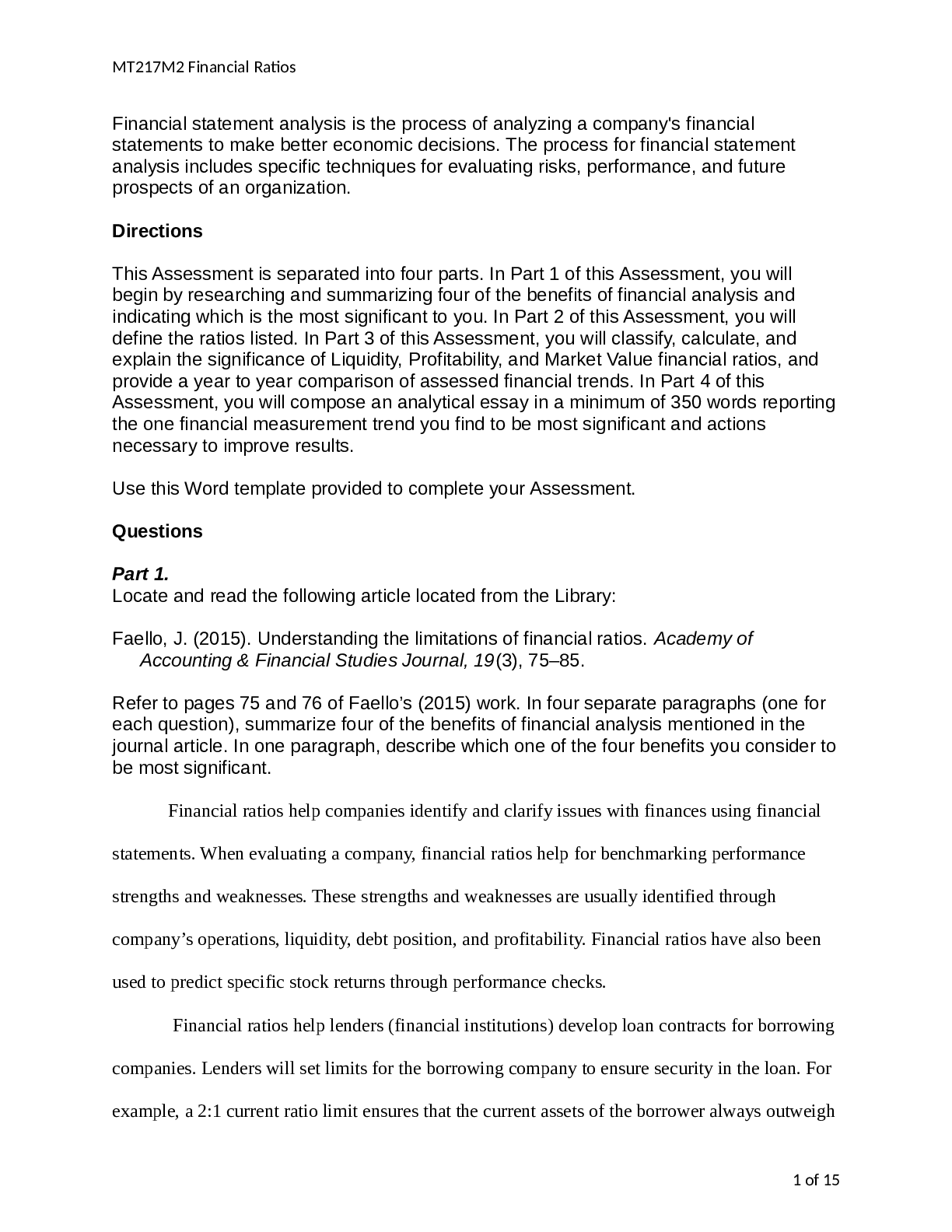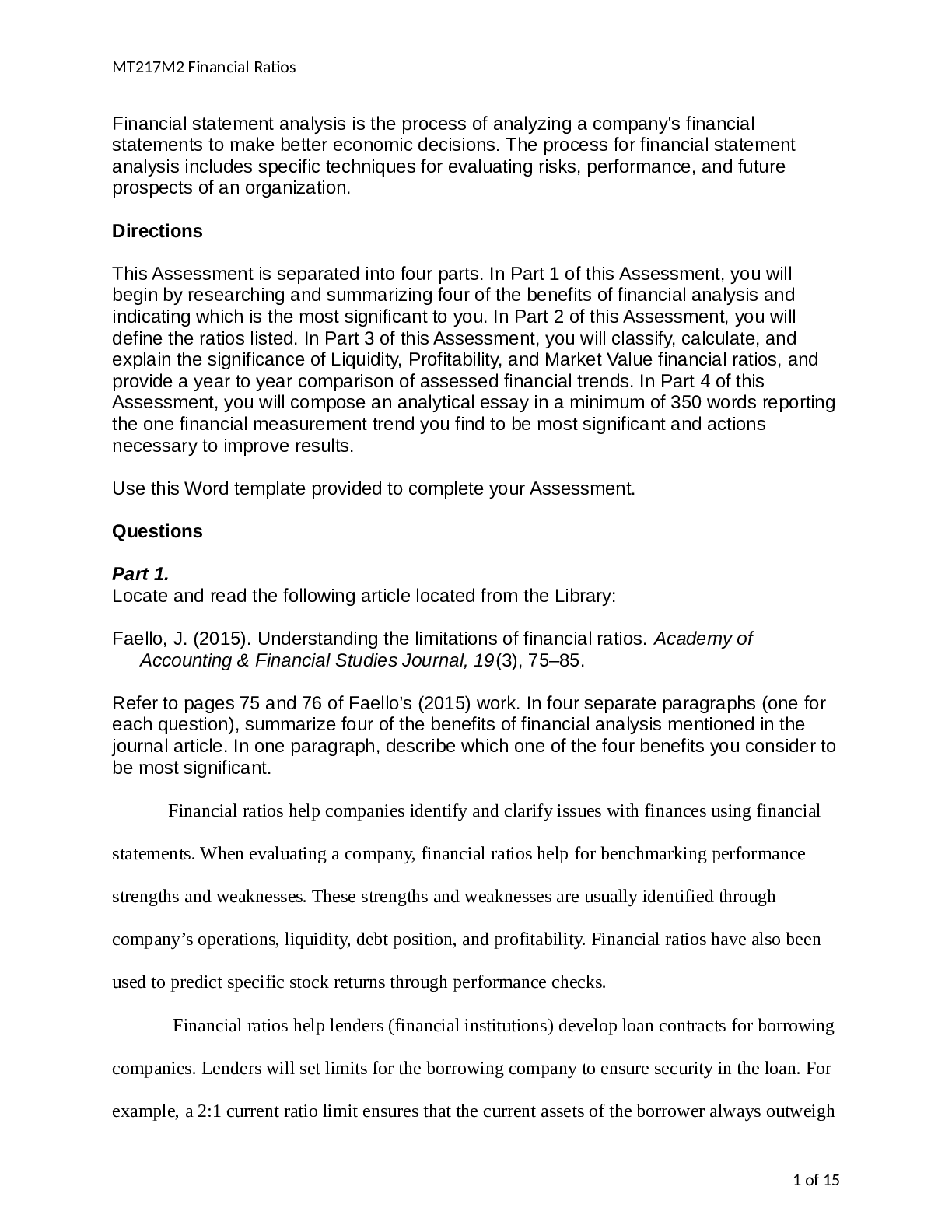Financial statement analysis is the process of analyzing a company's financial
statements to make better economic decisions. The process for financial statement
analysis includes specific techniques for evaluating risks, performance, and future
prospects of an organization.
Directions
This Assessment is separated into four parts. In Part 1 of this Assessment, you will
begin by researching and summarizing four of the benefits of financial analysis and
indicating which is the most significant to you. In Part 2 of this Assessment, you will
define the ratios listed. In Part 3 of this Assessment, you will classify, calculate, and
explain the significance of Liquidity, Profitability, and Market Value financial ratios, and
provide a year to year comparison of assessed financial trends. In Part 4 of this
Assessment, you will compose an analytical essay in a minimum of 350 words reporting
the one financial measurement trend you find to be most significant and actions
necessary to improve results.
Use this Word template provided to complete your Assessment.
Questions
Part 1.
Locate and read the following article located from the Library:
Faello, J. (2015). Understanding the limitations of financial ratios. Academy of
Accounting & Financial Studies Journal, 19(3), 75–85.
Refer to pages 75 and 76 of Faello’s (2015) work. In four separate paragraphs (one for
each question), summarize four of the benefits of financial analysis mentioned in the
journal article. In one paragraph, describe which one of the four benefits you consider to
be most significant.
Financial ratios help companies identify and clarify issues with finances using financial
statements. When evaluating a company, financial ratios help for benchmarking performance
strengths and weaknesses. These strengths and weaknesses are usually identified through
company’s operations, liquidity, debt position, and profitability. Financial ratios have also been
used to predict specific stock returns through performance checks.
Financial ratios help lenders (financial institutions) develop loan contracts for borrowing
companies. Lenders will set limits for the borrowing company to ensure security in the loan. For
example, a 2:1 current ratio limit ensures that the current assets of the borrower always outweigh
Read More


